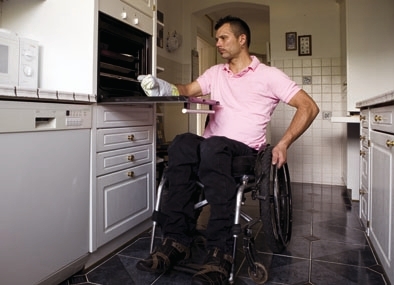You are viewing 1 of your 1 free articles
Overhaul needed to improve homes for disabled people, says report
Better integration between housing, health and social care departments is needed to maximise the impact of grants for home adaptations, a report has found.
Released today, the independent review of the Disabled Facilities Grant (DFG), recommends housing and health partnership boards be set up in every area of England with a similar structure to local safeguarding children’s boards.
Commissioned by the Department of Health and Social Care, the report said boards would bring together representatives from each department and could be made a requirement of DFG funding.
“One of the main problems is that responsibility for the customer pathway is often split between different organisations and departments that have separate objectives and budgets,” said the review written by the University of the West of England, Foundations, the Building Research Establishment (BRE) and Ferret Information Systems.
“Where services work best, there is a joint commitment at a senior and strategic level between housing and social care; districts and counties. We call this the “Goldilocks Approach” because it brings together the knowledge, skills and funding required to deliver a person-centred approach that is ‘just right’.”
This is one in a slew of recommendations that include expanding the £30,000 upper limit on DFG in line with inflation and renaming the 30 year old grant as part of a national campaign to raise awareness of the support available.
The report also suggested that a ‘smart home starter kit’ be given as part of every DFG application, citing the success of local authorities using the Amazon Echo to help with medication reminders, remotely controlling lights and heating, and detecting falls.
Sheila Mackintosh, research fellow at the University of West of England and co-author of the review, said: “[This review] shows how changes to the home such as providing a shower instead of a bath, installing a stairlift, ramp or rails, or in some cases a downstairs extension, can transform the lives of disabled and older people and enable them to remain independent.
“But governance needs to be improved, resources distributed fairly and transparently, and services updated to provide faster and more effective solutions in keeping with today’s lifestyles."
Paul Smith, director of foundations, the national body for home improvement agencies and DFG, said: “DFG will be 30 years old next year. In many ways it was ahead of its time – recognising the importance of supporting independence. The preventative approach it embodies is now becoming the norm and we have an opportunity to bring health, housing and social care practitioners closer together to make DFG more effective.”












